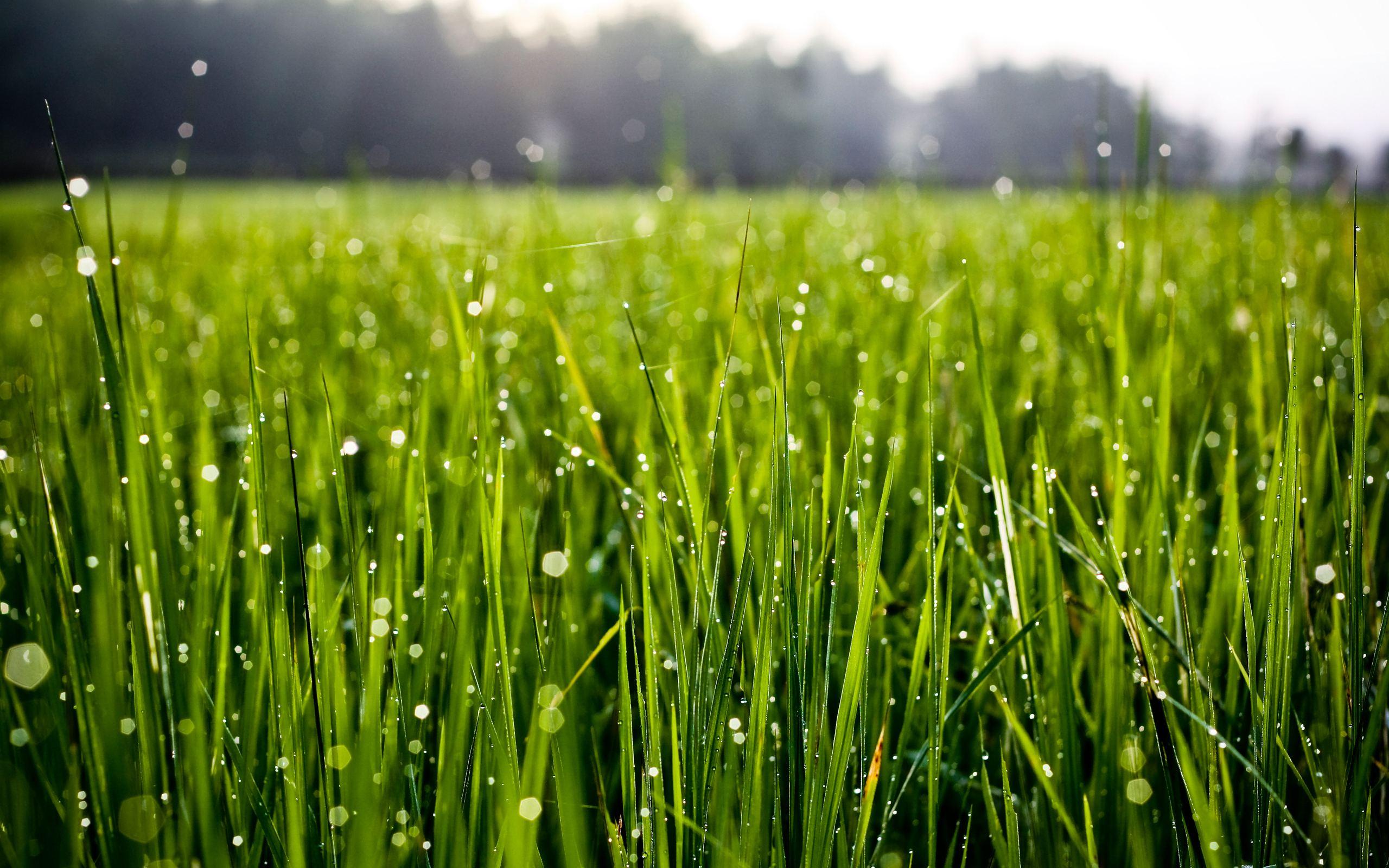The Magic of Morning Dew: Nature's Tiny Diamonds

Have you ever woken up on a crisp morning to find the world outside glistening with tiny, perfect spheres of water? These miniature jewels, known as morning dew, are more than just a beautiful sight. They play a crucial role in the ecosystem and have captivated human curiosity for centuries.
Dew in the morning is a natural phenomenon resulting from the condensation of atmospheric water vapor. As the air cools overnight, especially on clear, calm nights, its ability to hold moisture decreases. When the air near the ground reaches its dew point, the temperature at which it becomes saturated, excess water vapor transforms into liquid water, collecting on surfaces like grass blades, leaves, and spider webs.
The formation of early morning dew depends on several factors, including air temperature, humidity, wind speed, and the presence of cloud cover. Clear skies allow for greater radiative cooling, increasing the likelihood of dew formation. A gentle breeze facilitates the mixing of air layers, promoting dewfall. Conversely, strong winds can prevent dew formation by mixing warmer air from above with the cooler air near the ground.
Throughout history, dew has held symbolic significance in various cultures. Ancient Greeks associated dew with Artemis, the goddess of the hunt and wilderness. In some traditions, morning dew was believed to possess healing properties, used in folk remedies for various ailments. This cultural fascination with dew reflects its inherent beauty and its vital role in supporting life.
The ecological importance of dew is significant. For plants in arid and semi-arid regions, morning dew can represent a substantial portion of their daily water intake. It helps them survive during periods of low rainfall. Insects and other small creatures also benefit from dew drops as a source of hydration. Dewdrops can also act as miniature prisms, scattering sunlight and creating beautiful optical effects.
The physics behind dewdrop formation involves the process of condensation. As the air temperature drops below the dew point, water molecules in the air begin to clump together, forming tiny droplets on cool surfaces. The surface tension of water causes these droplets to assume a spherical shape, minimizing their surface area.
One of the benefits of dew is its contribution to plant hydration, especially in dry environments. Another benefit is its role in supporting the life cycles of insects and other small organisms that rely on it for water. Furthermore, the presence of morning dew can moderate temperature fluctuations, protecting plants from extreme heat or cold.
While dew can be beneficial, excessive dew can also create challenges. It can contribute to the development of fungal diseases in plants and can make surfaces slippery, posing a safety hazard. Managing excess dew may involve improving air circulation or adjusting irrigation practices.
Advantages and Disadvantages of Dew
| Advantages | Disadvantages |
|---|---|
| Provides water for plants | Can promote fungal growth |
| Supports insect life | Can make surfaces slippery |
| Moderates temperature fluctuations | Can damage some sensitive equipment |
Frequently Asked Questions:
1. What is dew? Dew is condensed water vapor that forms on cool surfaces.
2. How does dew form? Dew forms when air cools and reaches its dew point.
3. Why is dew important? Dew is important for plant hydration and insect life.
4. When does dew form? Dew typically forms overnight.
5. What factors affect dew formation? Temperature, humidity, wind, and cloud cover.
6. Is dew harmful? Excessive dew can be harmful to some plants.
7. How can I prevent excessive dew? Improve air circulation.
8. What is the difference between dew and frost? Frost forms when the dew point is below freezing.
Tips and tricks related to dew: Observe the weather conditions to predict dew formation. Look for dew on cool mornings, especially after clear nights.
In conclusion, morning dew is a remarkable natural phenomenon that plays a vital role in our ecosystem. From sustaining plant life to inspiring poets and artists, its significance cannot be overstated. Understanding the science behind dew formation allows us to appreciate its beauty and its importance in the interconnected web of life. The next time you encounter a dewy morning, take a moment to marvel at these tiny diamonds of nature and the intricate processes that bring them to life. By appreciating the small wonders of the natural world, we gain a deeper understanding of the delicate balance that sustains our planet and inspires a sense of wonder and connection with the environment. So, step outside and embrace the magic of morning dew, a testament to the beauty and complexity of our natural world.
Navigating the public image of nick cannon and his family
Unlocking the power toyota rav4 prime phev specs decoded
Unlocking business success with the right verse













